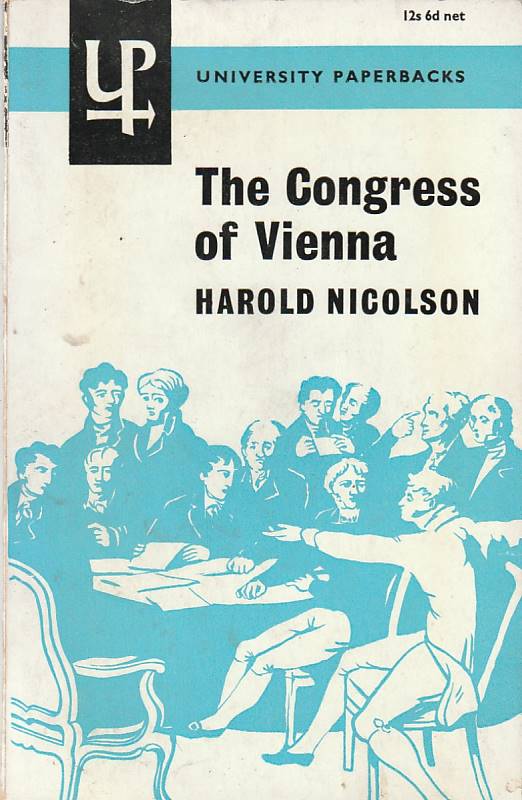
The Congress of Vienna: A Study of Allied Unity: 1812-1822
Harold Nicolson was well qualified to write this book. His father, Sir Arthur Nicolson, was a diplomat as he himself was in early adulthood being a member of the British delegation to the Paris Peace Conference of 1919 as well as serving in other capacities. A later historian of the Congress, Adam Zamoyski, has described it in the following way: 'The reconstruction of Europe at the Congress of Vienna is probably the most seminal episode in modern history'. Harold Nicolson's classic account written piquantly just after the Second World War is memorable not just for its adroit grasp of the many complex issues but also for its numerous vivid character sketches of the principal peacemakers: Alexander I of Russia, Metternich, Talleyrand, Castlereagh and others are brought brilliantly to life. 'Mr Nicolson has written a vivid, entertaining and penetrating book about an episode in nineteenth-century history with which has gifts and his own education most particularly qualified him to deal. Moreover he often makes valuable generalisations...In a short review it is impossible to convey by quotation those qualities which will make it eagerly sought after: its vivid portraits and scenes from the past: its clear analysis of political situations as they arise; its shrewd comments on the characters of the men who dealt with them' - Desmond MacCarthy, "Sunday Times". Faber Finds is reissuing all of Harold Nicolson's works of diplomatic history: "The Congress of Vienna: A Study in Allied Unity, 1812-1822"; "Lord Carnock: A Study in Old Diplomacy: Peacemaking, 1919" and "Curzon: The Last Phase, 1919-1925".
 €12
€12
The Congress of Vienna: A Study of Allied Unity: 1812-1822
Harold Nicolson was well qualified to write this book. His father, Sir Arthur Nicolson, was a diplomat as he himself was in early adulthood being a member of the British delegation to the Paris Peace Conference of 1919 as well as serving in other capacities. A later historian of the Congress, Adam Zamoyski, has described it in the following way: 'The reconstruction of Europe at the Congress of Vienna is probably the most seminal episode in modern history'. Harold Nicolson's classic account written piquantly just after the Second World War is memorable not just for its adroit grasp of the many complex issues but also for its numerous vivid character sketches of the principal peacemakers: Alexander I of Russia, Metternich, Talleyrand, Castlereagh and others are brought brilliantly to life. 'Mr Nicolson has written a vivid, entertaining and penetrating book about an episode in nineteenth-century history with which has gifts and his own education most particularly qualified him to deal. Moreover he often makes valuable generalisations...In a short review it is impossible to convey by quotation those qualities which will make it eagerly sought after: its vivid portraits and scenes from the past: its clear analysis of political situations as they arise; its shrewd comments on the characters of the men who dealt with them' - Desmond MacCarthy, "Sunday Times". Faber Finds is reissuing all of Harold Nicolson's works of diplomatic history: "The Congress of Vienna: A Study in Allied Unity, 1812-1822"; "Lord Carnock: A Study in Old Diplomacy: Peacemaking, 1919" and "Curzon: The Last Phase, 1919-1925".